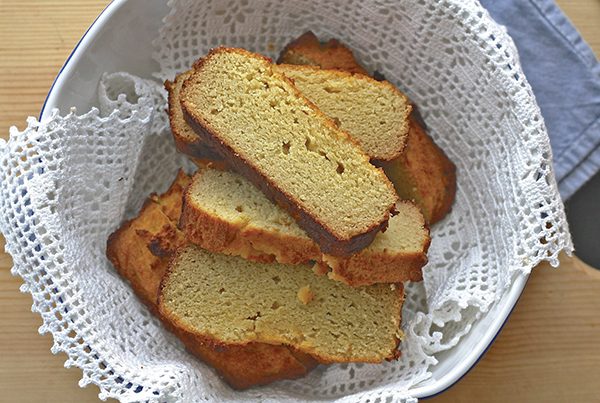
Above: Gluten-free bread.
Image: Pixabay.
Coeliac Disease concerns a person’s inability to break down and digest food containing the protein called gluten which is found in such cereals as wheat, barley and rye.
Gluten can cause the sufferer abdominal pains, bloating of the stomach and even in severe cases, diarrhoea. It can even irritate the lining of the person’s small intestine.
Coeliac disease is a common disorder which can be diagnosed at any age in a person’s lifetime. Recognition and awareness of the condition with the above symptoms should urge sufferers to go to their local GP for a blood test and a urine sample for immediate detection.
The Coeliac Society of Ireland (CSI) is a national charity to supply members of the public with both information and support regarding coeliac disease.
They provide a detailed food list with all certified gluten-free foods that are available on the Irish market, offering a dedicated helpline, with access to local support groups, updates on the latest medical advancements and with invitations to society events.
Gluten can be found in commonly consumed food, such as all wheat-based breads, pastas, pizzas and confectionaries. Gluten-free alternatives are usually made of maize, rice, millet, quinoa and buckwheat, and these can be supplemented in any person’s diet as a healthy and tasty alternative.
Many gluten-free products may lack flavour, but substitutes to using excessive amounts of sugar and artificial sweeteners include vanilla extract, almond extract, ginger and cinnamon.
Nowadays there is more of an awareness around coeliac disease, much of it due to proper diagnosis.
With the numbers of diagnosed individuals having increased, there are more options with regards to gluten-free breads, baking and pasta. Restaurants have also adapted to these changes and more diners can enjoy the gluten-free option when dining out, with more dishes being prepared as gluten-free alternatives. NewsFour investigated the awareness and offerings available for coeliacs in the local area.
Roisin Buckley from Browns Barn Cafe on Bath Avenue spoke about some of the food options available for clientele seeking a gluten-free alternative: “We try to accommodate everyone as best we can. We advise people not to limit themselves to just what they see on the menus. We have a lot of customers who are gluten intolerant these days. We are very accommodating and we are not fussed with any requests made. However, desserts can sometimes be rather limited. The owners here at Brown’s Barn are hoping to expand on existing gluten-free options in the future.”
Chef de Partie, Connor Fitzpatrick, at The Chop House gastro pub on Shelbourne Road spoke about the process of cooking and preparing gluten-free food: “Most main courses in the restaurant are gluten-free.
You can get gluten-free flour which is the closest to actual T45 flour that is used ordinarily for baking.
Corn flour is loose and stodgy, whereas gluten-free flour is more suitable as an agent for making the dough rise.”
It should be noted that many pizzerias have improved their offering of gluten-free bases for coeliac-intolerant clientele, such as Milano’s on Haddington Road and Millar’s Pizza Kitchen on Baggot St Upper.
Gluten-free cooking standards often improve as the use and method of cooking with appropriate ingredients develops on a basis of trial and error.
However, there are challenges to it. Gluten-free bread often has a habit of failing to rise, but bakers and local entrepreneurs who undertake gluten-free cooking have also been known to use xanthan gum as an agent to help get the dough to rise properly.
With a growth in awareness of coeliac disease and the rise in society’s general interest in cooking, gluten-free alternatives are available as part of the expansion of new cooking materials and produce on the market.
By Robert Fullarton



